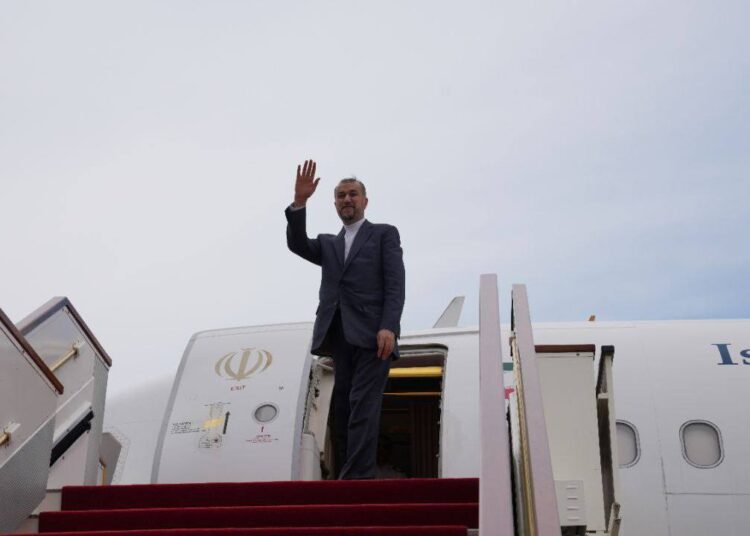Iranian Foreign Minister Hossein Amirabdollahian embarked on a trip to Syria and Lebanon. His consultations in Damascus and Beirut will encompass bilateral relations, regional and international issues.
Amirabdollahian’s visit to Damascus coincides with months of intensive diplomatic and economic exchanges between Iran and Syria. On July 30, a high-level Syrian delegation, led by Foreign Minister Faisal Al-Maqdad and including the ministers of foreign trade and communications, visited Tehran. The two countries have also sent other delegations to each other in the past month.
The main objective of Iran’s foreign minister’s visit to Syria is to follow up on the implementation of the agreements reached during the Iranian president’s visit to Damascus in May. The focus of most of the recent consultations between the two countries has been on enhancing economic cooperation. However, the new security situation in Syria, the regional developments and the multilateral issues with other regional actors are also likely to be discussed in the upcoming meetings.
Syria is currently exploring the possibility of normalizing relations with Ankara, after initiating the process of restoring ties with some Arab countries in the region. The two countries have started indirect talks, and according to some reports, a quadrilateral meeting between Iran, Syria, Russia and Turkey is also being planned by the capitals. Meanwhile, the US has increased its military activities in Syria in recent months, and some reports suggest that it is trying to instigate protests and create new internal political tensions in Syria. In this context, Hezbollah Secretary General Seyyed Hassan Nasrallah warned against the US and its allies’ attempts to revive Takfiris in the region in his speech on the occasion of the sixth anniversary of the liberation of Lebanon’s Arsal Heights.
The foreign minister’s visit to Lebanon also has political and economic dimensions. Lebanon is facing a political stalemate due to the lack of consensus on electing a president. The country’s economic situation has also deteriorated under the shadow of the political crisis. Iran’s consultations with Lebanese political groups and figures are aimed at helping Lebanon overcome the current challenges.
Lebanon has been without a president since October 2022, when Michel Aoun’s term ended. Despite holding more than ten sessions until June 2023, the parliament has failed to elect a new president due to the disagreement among the parliamentary parties.
France, which considers itself a traditional stakeholder in Lebanon’s political scene, has tried to facilitate an agreement among Lebanese political groups and parties on the new president through influence, mediation and pressure. However, none of its initiatives and efforts have been successful.
Some observers believe that Iran’s political role in Lebanon can be the missing piece of the puzzle in resolving the disputes and ending the political uncertainty in the country. Solving the Lebanon issue is also one of the common agendas of Iran and Saudi Arabia after improving their relations.






